Articles
The Adventures of Louis L'Amour and the Diamond of Jeru by Stephen Jared
As a fan of great adventure stories and old Hollywood, I became enamored with a movie Louis L'Amour's son, Beau, made a few years ago called The Diamond of Jeru. The movie was based on a short story Louis L'Amour never completed. Louis L'Amour was one of several celebrated American authors who got started in the pulps. When tales of adventure in the American West broadened to the exotic Far East, Arabia and the South Seas, then to war-torn Europe in the first half of the 20th century, Louis L'Amour was there.
 From 1940, includes Long Ride Home by Louis L'Amour From 1940, includes Long Ride Home by Louis L'Amour |
"My great-grandfather was killed by Indians up in North Dakota, and scalped. My grandfather had fought Indians, and some of the Indians my grandfather had fought, used to come around and visit him. They'd sit around and talk over the old days and drink a lot of coffee and tea, loaded half full of sugar. But after my grandfather died, they never came back. I missed them very much, always enjoyed seeing them come." - Louis L'Amour
Born in 1908, Louis L'Amour grew up on the edge of the American West. He would listen to his grandfather's stories of life as a soldier in both the Civil and Indian Wars. Louis would often meet cowboys as they'd pass through the Dakota Territory on the Northern Pacific Railroad. Eventually L'Amour would hobo across the country, hopping freight trains and sleeping in grain bins and gaps in piles of lumber. He would stuff newspapers in his clothes to keep warm. In Texas, he worked for a man who had been raised by Indians. In New Mexico, he baled hay, always absorbing the people he'd meet and the lives they lived.
 |
"Billy the Kid and two of his pals were buried in a place right across from where we were baling hay one day, and I commented on it, and one of the fellows said, "Well, gee, if you're so into him, talk to old Tom over there. He used to ride with Billy." Now, Tom wasn't one of these guys who said he rode with Billy the Kid; Tom is on record for having rode with Billy the Kid. He'd been riding with him, wounded in gun battles with Billy, and been in jail with him. He'd been a rough boy in his day. He taught me a lot about the west, about gunfighters." - Louis L'Amour
Traveling further west, L'Amour made his way to California, arriving in the port town of San Pedro. He signed up for Marine Service Bureau then waited three months for a ship that needed him. The one with the vacancy was officially called
The Steel Worker's first stop was Japan, where L'Amour visited Yokohama, Nagoya and Kobe, before heading south to Shanghai. The year was 1926 and long months passed with the future writer spending time in Borneo, Java, Sumatra, Singapore, and Port Swettenham near Kuala Lumpur. Threats among the crew over rough conditions kept tensions on the ship high. Finally they climbed northwest to Egypt and Arabia. Passing through the Suez,
 |
L'Amour would spend years drawing from these experiences exotic tales cast with seamen, soldiers of fortune and the gangsters he encountered in such remote places. He began to make a name for himself in publications like Thrilling Adventures, Sky Fighters, and American Eagles.
"My dad would say that, before World War II, if you told someone in a bar that you'd been to Borneo they'd call you a liar, and you'd end up in a fight. Even though there were people doing that ... most weren't." - Beau L'Amour
In his mid-thirties, the world was at war again and L'Amour entered the United States Army. He was sent to England first then Europe where he served as a second lieutenant before being promoted to first lieutenant. He commanded a platoon in Germany and France.
Once the war ended, he returned to the United States. The market for adventure stories had gone. And so, an editor friend, while in Manhattan, suggested to L'Amour that he do some writing based on the tales he'd been reciting about the Wild West.
 Louis aboard The Steel Worker Louis aboard The Steel Worker |
L'Amour would go on to earn numerous awards for his western prose. Movies and audio dramas were adapted from his stories. Such talents as John Wayne, Natalie Wood, Sophia Loren, Sean Connery, and Tom Selleck have brought his characters to life in films. Eventually, L'Amour became one of the most popular American fiction writers ever, selling over three hundred million books.
Since his father's passing in 1988, Beau L'Amour has done a remarkable job keeping Louis L'Amour's stories alive. One third of all L'Amour's books have sold since the late 1980's. Over five million copies of audio dramas have sold through Random House Audio Publishing, with Beau working as supervising producer, writer and director.
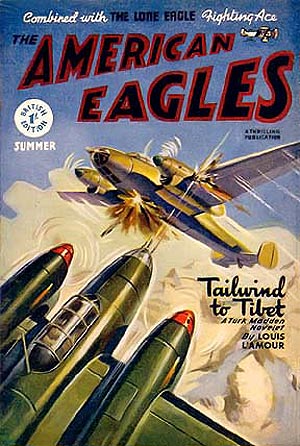 |
The Diamond of Jeru, starring Billy Zane, Keith Carradine and Paris Jefferson, contains many classic elements of adventure, reminding audiences of films like King Solomon's Mines, The African Queen and Casablanca. Set in 1955, it follows a war-scarred American, down on his luck in Borneo. He is hired by a wealthy couple to find a large diamond in a jungle full of dangerous natives.
The screenplay by Beau reveals the sophistication of one who has written many, as there are subtle moments throughout that have a rippling effect expanding the depth of time, place and people. Here are pieces pulled together from a couple of our conversations.
There's something so 20th century American about your dad's life. From hopping trains through the American West, having no money at all, traveling through so many exotic corners of the globe, and finally to becoming a wildly successful storyteller, it was a remarkable life. Would that be an overly romantic view? Did he feel he lived through a great time in American history and became a vital part of it, or would he feel differently about it? I think he would totally agree with you. When he was a very young child he was given a ride around the block in Jamestown, North Dakota, on the front of a saddle with Buffalo Bill. My grandfather was the local veterinarian who took care of the Buffalo Bill Show when they were in the upper Midwest. My dad would have been three or four years old and he said he didn't remember much except that Buffalo Bill was 'a big man who smelled of bourbon and tobacco.' And so he had this seminal western experience. Contrast that with sometime in the very early 1970s my dad and I went motorcycle riding with Marlon Brando and his biker buddy Wally Cox.
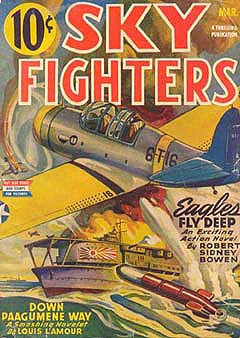 |
Was it from your dad that you picked up your enthusiasm for history? Probably. I grew up in a house with fifteen thousand books. We had to leave a home in West Hollywood because there were so many books we almost couldn't get around anymore. If I pulled something off a shelf it was likely to be a history book or Travel Across The Plains, or Travel in Tibet, something like that.
I noticed a lot of maps in the house. Those are old historic maps of my dad's. I love maps from the early to mid-20th century because there've been so many changes.
Among your dad's contemporaries, who did he admire? Was he a fan of Hemingway? He liked some of the Hemingway short stories. I think Hemingway was generally a little self-indulgent for him. I know he really liked the fiction writers he grew up with, H. Rider Haggard, Edgar Rice Burroughs, people like that. As a kid he liked lot of late 19th century, early 20th century adventure literature. He really liked Jack London.
Jules Verne? He read Verne to my sister and I when we were kids. From the Earth to the Moon, stuff like that. He was very impressed by how Verne depicted the future, and how accurate some of that was. I think he was more impressed with Verne as a futurist than an author.
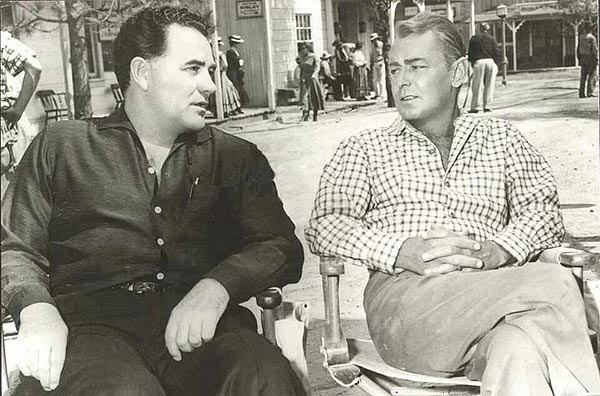 Louis with Alan Ladd Louis with Alan Ladd |
Why, after World War II, did adventure stories go out of style? It was a trend in the late 1940s. Because of WWII the population had a little too much adventure. In the broader picture, in the early days of American fiction, westerns were not anachronistic. They were contemporary adventure stories. They were stories of current conditions taking place in the American West. As the West was settled, the unsettled territory, where things were chaotic enough to be dramatically interesting, became other places in the world. For writers of other nationalities, the settings for their stories already were other places in the world. Just after the western period, you have suddenly H. Rider Haggard, Arthur Conan Doyle, Talbot Mundy, among others. Edgar Rice Burroughs, incidentally, wrote a couple of westerns, The War Chief and Apache Devil. In the 1890s, Burroughs, whose father fought in the Civil War, went to Idaho and lived like a cowboy. He rode the range, herded cattle, spent time in what was still a volatile part of the country. After that, he joined the 7th Cavalry in the Arizona Territory, which was General Custer's old regiment. So, eventually the West, the place where adventure stories were often set, became the Far East. And eventually, by the end of World War II, these exotic locations, which had been the settings for all these stories were now considered to be less attractive, and much better known, because of the returning soldiers. So, you'd have a hard time selling an adventure story to a guy who'd been to these places and had suffered there. There was a romance to these places that writers had injected into their work, and all that was, at least to some degree, lost during such a costly war. So, after World War II, the western now offered a chance for readers to feel nostalgic.
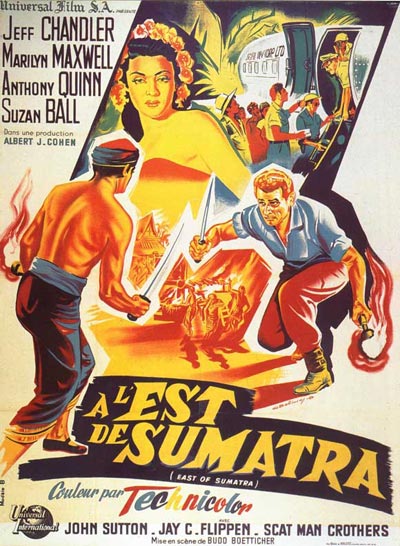 |
Your dad's writing was reality based. He wrote things that could have happened. Did he ever look at Doc Savage or The Shadow and think, 'Why am I on the same shelf with these guys? These guys write fantastic type of stories.' Did he think of some of those works as kids' stuff? No, in fact, the opposite was true. I think he looked forward to a time when he could have the freedom to write things that weren't so reality based. There's an extraordinary amount of works we haven't yet published that aren't so much science fiction or fantasy but maybe close to what Talbot Mundy was writing ... mystical adventure.
He would start a story and if he got stuck he'd move on to another story. This is why so many incomplete manuscripts were left around, including The Diamond of Jeru. Most of the stuff that I have that is unfinished isn't so much unfinished because he got stuck but his way of writing was to write the first two chapters. He always felt that if he could get the first couple of chapters he was fine. He didn't write with a plan or an outline of what he was going to do, at least not a particularly complete one. He would get bored with a story if he knew too much about it before he started writing it. The greatest motivator for him as a writer was to figure out how he was going to work out the story. So, beginnings were very important. A lot of these were experiments to see what developed. The Diamond of Jeru was actually a complete story. It just wasn't very good. It was something he knew he was going to have to go back and work through, and he didn't like doing that very much, and so he just stuck it in a box. He didn't try to sell it. And he was completely unenthusiastic about rewriting.
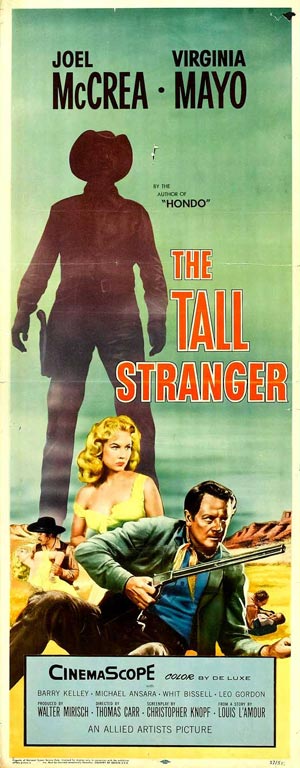 |
Seems such an odd way of writing. I can't imagine starting a story, feeling like I'm just going to wing it, and if I suddenly feel too comfortable then it becomes boring so I'll move on to something else where I have no idea what I'm doing. In the beginning of his career he planned things out in a more sophisticated manner. He also rewrote stuff early on. What he later discovered was that when he tried to turn that into a real career, where he was making money, he couldn't do it. It took too much effort. He couldn't develop the stories quickly enough to get them out for the markets that he had. When he was writing for the pulps in the beginning he was lucky to be getting a cent a word. I think by the time the pulps collapsed he might have been up to a cent and a half or two cents a word. A really good payday on a pulp story was maybe three hundred dollars. It was common that he made under a hundred dollars. After WWII, all he had was a bed and a bathroom and a typewriter on a folding chair. In order to get out of those conditions he had to sell fifty stories a year. Not write fifty stories but sell fifty stories, which meant he had to write considerably more. And so from that point forward he began, without realizing it, programming himself to write extemporaneously. He'd write a story and if it didn't all come out at once he'd give it up and move on to another story. By doing this he kept his volume up to an extraordinary level, and developed the ability to write from his unconscious. It's like an actor who can do improve comedy. It's just opening that pathway. Your unconscious speaks directly into your performance. In his own way he did exactly what an improve performer does. The preparation was getting his head around the time period, daydream about the characters, and eventually let it out. Every once in a while, he'd let it out too soon and it wouldn't work. He had an innate sense of timing as to when a story was developed enough to sit down and write it, and it ultimately made the writing process painless. He never agonized about it. He just trained himself to kind of let it happen. It's also the reason he was so successful I think. He didn't really know what was going to happen too many words ahead of the person reading it, and so there was this sense that the reader was exploring the story at the same pace as the writer. You feel that he's as excited by what's happening as you are. I think the infectiousness you find in reading a Louis L'Amour story comes from how immediate the experience of writing it was.
"I always wanted to tell stories. All my life I wanted to write. Most of my first stories were about Indonesia and China, some about Latin America, places like that. It's tough getting started writing because there really is no place to begin. From the day you start trying to sell a story, you're competing with the best people who sell stories.” - Louis L'Amour
 |
What was the relationship like between your dad and Ray Bradbury? They were both guys who lived in Los Angeles and didn't drive. So they met occasionally intentionally, very often by accident because they were trying to get around Los Angeles without a car. So they might meet on a bus or they might meet walking across Beverly Hills or West Hollywood. They might meet outside of a bookstore or something of the sort. They were pedestrian buddies (laughs). They had a shared history in that they moved to Los Angeles at the same time. I think they both came in 1946. They were both very excited by the possibilities of Los Angeles and the multidimensional experience that was here in those days. In the years after WWII, Los Angeles had the aircraft business, it had the beginnings of the space program, it had intellectuals from all different places, there were all kinds of literary people who'd moved to Los Angeles for one reason or another, the film business obviously.
How about the relationship with Jim Thompson? It was a turbulent relationship. My dad was impressed with Jim when they first met. Jim was already a moderately successful writer at the time. My dad recognized he was doing something unique and remarkable. I think my dad's attitude to Jim was that he was a moody and dark character but he was very impressed with what Thompson was doing stylistically and in terms of subject matter and he always felt that way. Even later in life, before Thompson passed away, my dad felt he'd been overlooked.
Was your dad ever tempted to do more crime fiction writing? Not so much. He never gave up on his enthusiasm for classic adventure and he liked doing the westerns but I don't think he ever wanted to return to the crime genre.
Who do you read? I really like James Ellroy. Charles Stross, a science fiction writer, he has a great sense of humor. I read a lot of non-fiction.
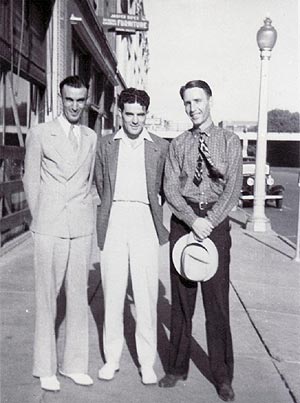 WPA writers Joe Paskvan, Louis L'Amour, Jim Thompson WPA writers Joe Paskvan, Louis L'Amour, Jim Thompson |
Tell me about Law of the Desert Born. Having a background in film, I became very interested in doing a graphic novel. Once I got into it I realized the similarities between writing a graphic novel and cinematic storytelling are not as great as one might think. But telling a story visually was really exciting to me. The story was a screenplay that I had written with Katherine Nolan from the audio books. It was an amazing experience. We had the greatest team ever. Charles Santino broke down the script into visuals much like a director would. He came up with the basic outline of what the panels would look like. Thomas Yeates was the artist, and when we saw his work we were all in agreement immediately that he was the guy. He developed a technique where the graphics are black and white but look like watercolors. I had discussed with him early on that he had to come up with a way to show a big landscape. It had to have distance and depth.
Had Thomas done a western before? He did Zorro.
How did The Diamond of Jeru come to be made into a film? It started as a partially finished short story that my dad had abandoned, probably in the late 1940s. It was sitting in a box that was left behind after he died. He left a room that was hip-high in loose paper, except for this trail that was about eighteen inches wide that went from the doorway to his desk - tons of material in there. There were piles of manuscript pages in no order. A few years after we had gone through this archeological project, piecing all the manuscripts together, we started publishing collections of short stories. We published eight or nine books in all, and those books were all stories that had been uncollected, and at least half of which unpublished before that time. Some were intended for the magazine market that existed in the 1950s; some were old pulp stories. So, we started editing these stories, and I'd sit down and work out exactly what mixture of stories would be put into these collections. The way I worked was to try to make sure a story worked with the least amount of my editorial impact. However, occasionally there was a story that needed a lot of work. The Diamond of Jeru was one of those. We originally weren't going to publish it at all. Then our editor at Bantam Books called me and said this one collection was short. He asked if I could find something to bump it up a little. So, I looked at The Diamond of Jeru again. I worked on it myself and stretched the story from about fifteen pages to eighty. As a result of pretty much writing it myself, it became a story I knew very well.
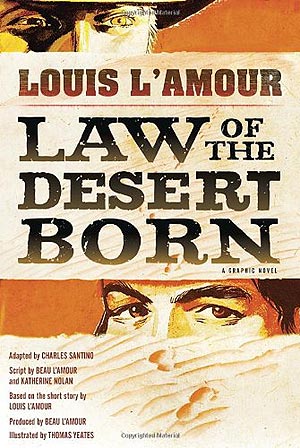 |
Flash forward a year or two. A friend was working with a woman from the USA Network cable TV channel, and she mentioned to him they were looking to do a classic adventure movie. They were experimenting with various genres and wanted this old-fashioned type adventure film. So, my friend told her that he knew of someone who could get something like that to her. So, he called and described what they were looking for and roughly what the budget would be. The Diamond of Jeru seemed to fit the bill. They looked at it for just a couple of days and purchased it. My friend, Mike Joyce, wanted me to come on as a producer, which was terrific. I had produced a couple movies before, but by then had pretty much left the business. I wrote the first draft of the script in three weeks. I had written scripts before and had trouble selling them. In fact, when I spent the three weeks writing The Diamond of Jeru script we were editing our audio drama, Son of a Wanted Man, which was based on an unproduced screenplay of mine.
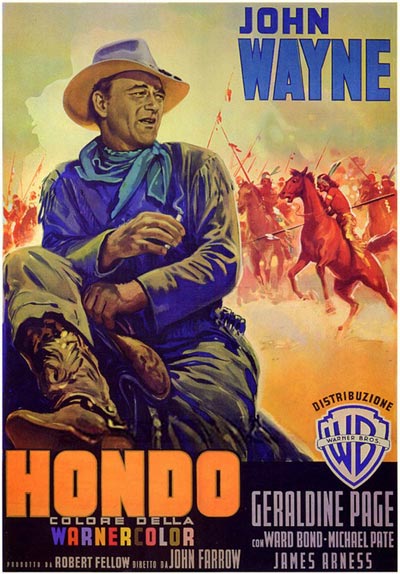 |
Some of my favorite adventure movies have been ones made for television: King Solomon's Mines with Patrick Swayze, Around the World in Eighty Days with Pierce Brosnan, Arabian Nights. Is it easier to get a good adventure movie made on TV these days, rather than in the multiplexes? One of the things I've learned is that in order to sell something, there has to be a pre-existing need for that product. Had I taken The Diamond of Jeru to any other outlet, there's no question that every single person would have turned me down. It just happened that these people already had in mind doing something like this. My friend, Mike, knew exactly the size of the film they wanted to make and so, when we sat down to talk about it, we were specific, even to the point where we set it in the 1950s. Originally, I think they would have preferred something set in the 1930s - they were mining Raiders of the Lost Ark territory - but we knew setting it in the 1920s or 1930s would up the price on it significantly.
You and your dad saw Raiders of the Lost Ark on the day it opened in Westwood. We went to the noon performance. We had a great time. We got to the part where Indiana Jones is with the snakes in the Well of the Souls and my dad leaned over and said, "I wrote this," and a few minutes later there was the fight around the plane with the big guy, and Dad said, "I think I wrote this too." Truly, there is a scene that is fantastically similar to the snake scene in a story of his called South of Suez. In Wings Over Brazil there is a scene not quite so similar to the fight around the plane. But he wasn't suggesting plagiarism. He thought it was a lot of fun.
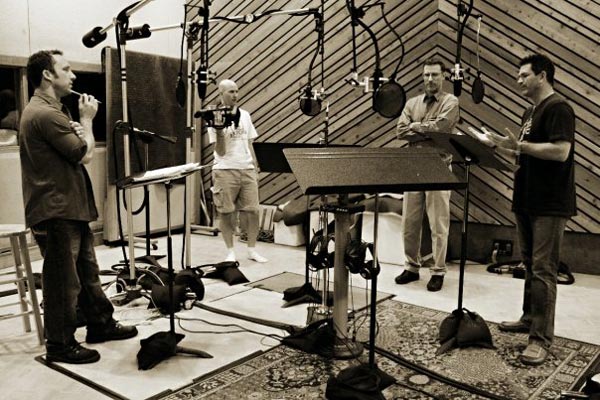 2nd from right, Beau L'Amour 2nd from right, Beau L'Amour |
Do you think westerns will ever make a comeback? No. Not to the extent they existed in the 1960s. Every ten years you might have a few things appear on the radar, but essentially it comes down to this: the type of person who is a creative executive is not someone who likes westerns. They seem, from my experience, to be embarrassed to be even talking about making a western, and it's definitely not something they can go to lunch with their peers and brag about. And that's the key. Is it something that is socially acceptable within the pool of people in Hollywood who make films? Westerns are socially acceptable for directors to talk about - they love it. Actors love it. Creative executives don't. In television it's different. Television never goes too many years without experimenting with a western.
You've returned to The Diamond of Jeru with an audio drama. Why Jeru again? It occurred to me that The Diamond of Jeru still had stuff to say. In this new Jeru, the characters, for example, are considerably more vulnerable. Also, the publishers require a certain length, which is much longer than the length of a movie. It's taken us in some new and different directions.
As to scripting The Diamond of Jeru audio drama, how do you approach something like that? It's not too terribly difficult because you don't have to do it all at once. I worked at it part time for a couple of years. And, unlike with a film, you can be left alone. We did whatever we wanted. It's a strange combination of writing it like a film and a novel at the same time. I wrote all the scenes like film scenes. And then I started plugging in narration. I like narration, though it's not all that well accepted in the "radio drama" community. It is a high art to do an audio script that has no narration but it gets clunky when you do these big western or adventure pieces where a lot of the story is about what the audience and the characters are seeing. Narration saves you from having to force the dialog to comment on the surroundings. That always sounds hokey.
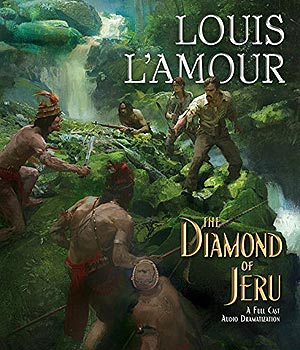 |
And he has to match your timing? No, he doesn't have to match the timing. We then re-edit the show around whatever he does. It has this accordion effect. It gets tightened and loosened, and tightened and loosened a few times. And you can re-write as you're going.
Tell me about revamping The Diamond of Jeru from the original text. In my dad's story I latched on to the little town as it reminded me of stories by Somerset Maugham. He wrote about that part of the world, though not high adventure. Maugham was a favorite author of my dad's. That sense of place was sort of my anchor. After that, more than anything you look at intention, not so much what was Dad doing but what was he trying to do. I just felt I needed to be true to that.
What did your dad think of Hollywood? Did he like movies? He wasn't particularly pleased with any of the versions of his movies. He was pleased with Hondo. But later felt it was a good movie for its time, but wasn't timeless. In general, he liked movies. He continually hoped that a good film would be made from one of his. I've tried, you can't imagine how hard the powers that be make doing a good job, especially westerns.
 Beau L'Amour with Joel Bryant Beau L'Amour with Joel Bryant |
Did he miss writing adventure stories, once he committed himself to westerns? Yeah. He really enjoyed writing the westerns, but I think in the late 1970s he started to feel a little stifled. He started making forays into writing other things and had a hard time selling them. He wrote The Walking Drum in the early 1960s, which was an adventure set in the 11th century. It wasn't received with enthusiasm, although when he finally sold it in the 1980s, it became a New York Times bestseller. He also wrote The Last of the Breed about a pilot shot down over Russia who has to escape. The character was a Native American and so he has to recreate the migration out of Central Russia to Alaska. That was written in 1984-1985. He was planning on two sequels to The Walking Drum when he passed. He was agonizing over how to write his autobiography, which would have included many adventure-esque elements.
"I used to do a little boxing too because every town always had some fellow who thought he was a fighter. Sometimes he was. But many times he just thought he was. I'd come into town and get acquainted, and they'd arrange a match. Other fighters always knew I was a fighter but the average guy didn't. I didn't have cauliflower ears. I didn't have a broken nose. And so there were a lot of guys willing to try me. I fought fifty-nine fights and I lost five. Thirty-four were knockouts. I never lost a fight when I was eating regularly." - Louis L'Amour
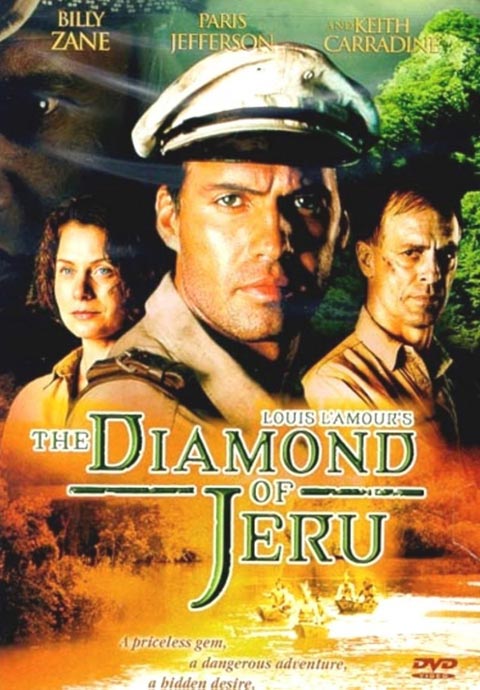 |
For more information about Louis L'Amour, visit these web sites:
www.louislamour.com/
www.louislamourgreatadventure.com
www.thediamondofjeruaudio.com


